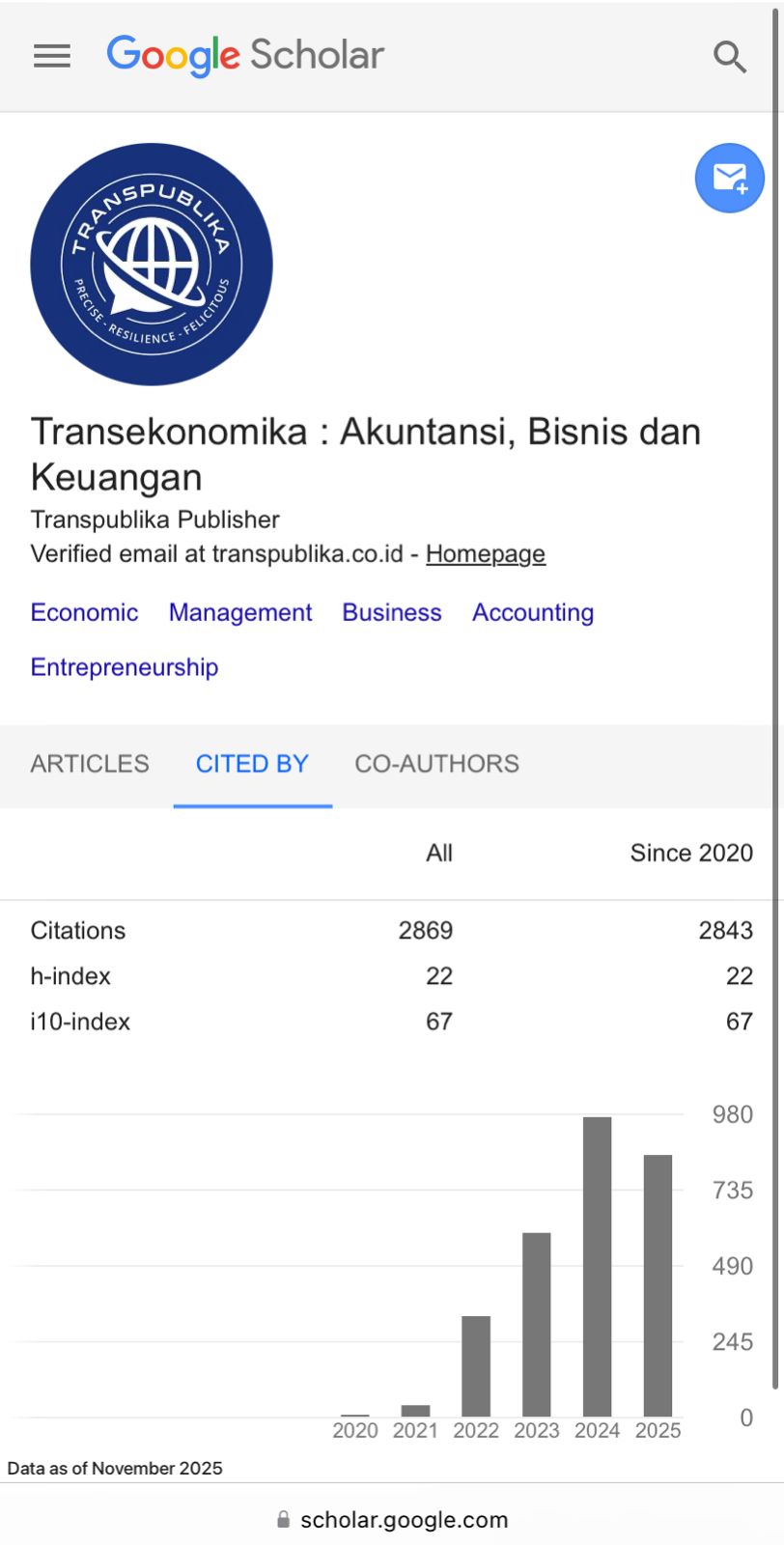DAMPAK GELOMBANG EKONOMI BARU BAGI PERILAKU USAHA KULINER
(Studi Kasus Pada Street Food di Kota Tasikmalaya)
DOI:
https://doi.org/10.55047/transekonomika.v2i5.171Keywords:
New Economic Wave, Culinary Business Behavior, Tasikmalaya City Streed FoodAbstract
The existence of a new economic wave in current economic activities is transforming the former economic order. The economic growth makes economic activities more productive as a result of people's easy participation in economic activities. Ideas, knowledge, information, and technology are factors that make it easier for people to use the new economic tide as a livelihoods. One of the perceived effects of the new economy is that of the culinary operations on street food in Tasikmalaya City. The new economic wave directly impacts their business behavior in determining appropriate strategies in sales. A method of study is a qualitative study with a descriptive approach. Data analysis techniques use data reduction, create descriptive and systematic summaries, and draw conclusions based on data obtained through various information sources, such as observation, interviews, and previous research reports. The results of this study prove that culinary behavior on the street food in tasikmalaya city impacts the existence of a new economic wave through the adjustment to sales strategies, such as products, price, location, quality of service, and promotion. It is marked by a variety of factors from the new economic wave that is felt and applied to the street food industry in Tasikmalaya.
Downloads
References
Awaluddin, M. A., Marpaung, M., & Fatira, M. (2021). Pengaruh Kepercayaan Dan Kualitas Pelayanan Terhadap Loyalitas Muzzaki Pada Inisiatif Zakat Indonesia Perwakilan Sumut. Prosiding Konferensi Nasional Social & Engineering Polmed (KONSEP), 2(1), 489–496.
Howkins, J. (2001). Creative Economy: how people make money from ideas Penguin Group (USA). J. Howkins Incorporated. Allen Lane.–2001.–263 p.
Kotler, P. (2009). Marketing management: A south Asian perspective. Pearson Education India.
Kotler, P., & Armstrong, G. (2018). Principles of Marketing, translated by Bahman Foroozandeh. Tehran: Amukhteh’Publishing.
Kotler, P., & Keller, K. L. (2012). Marketing Management: Philip Kotler, Kevin Lane Keller. Pearson.
Purnomo, B. R. (2017). Competitive Dynamics Pada Usaha Mikro: Analisis Persepsi Kompetitif Pada Usaha Mikro Bidang Kuliner Di Unitomo Street Food Surabaya. Media Mahardhika, 16(1), 1–10.
Purnomo, R. A. (2016). Ekonomi Kreatif Pilar Pembangunan Indonesia. Ziyad Visi Media.
Sari, A. P., Pelu, M. F. A. R., Dewi, I. K., Ismail, M., Siregar, R. T., Mistriani, N., Marit, E. L., Killa, M. F., Purba, B., & Lifchatullaillah, E. (2020). Ekonomi Kreatif. Yayasan Kita Menulis.
Sartika, S. H., Mashud, M., Hasan, M., Syam, A., Susilowati, E., Purba, B., Arfandi, S. N., Jufri, M., Faried, A. I., & Rosihana, R. E. (2022). Ekonomi Kreatif. Yayasan Kita Menulis.
Simatupang, T. M., & Sridharan, R. (2008). Design for supply chain collaboration. Business Process Management Journal.
Sutrisno. (2021). Improvement Of Human Resources Competence With Academic Quality Policy In The Economic Sector Of Higher Education Providers In East Java. Transformational Language, Literature, and Technology Overview in Learning (TRANSTOOL), 1(1), 19–28. https://doi.org/https://doi.org/10.55047/transtool.v1i1.104
Ulfah, K., & Jatmiko, J. (2020). Store Atmosphere, Perceived Value, dan Promotion Terhadap Kepuasan Pelanggan Street Food Festival. JCA of Economics and Business, 1(02).








.png)







.png)


.png)

.png)












